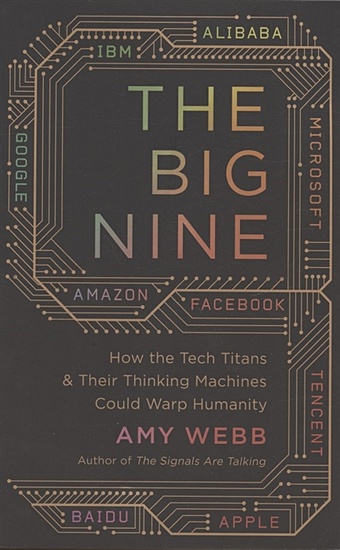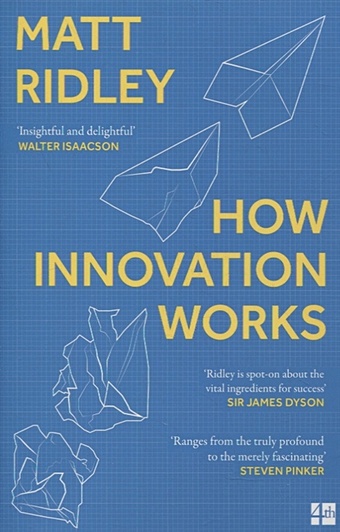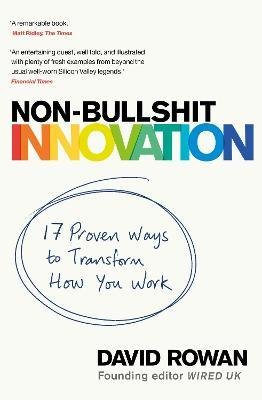ChatGPT: The AI Innovation that’s Made Conversing Smarter and Easier
[ad_1]
ChatGPT: The AI Innovation that’s Made Conversing Smarter and Easier
In recent years, artificial intelligence (AI) has become an increasingly popular term in technology, and it has brought many innovations with it. Chatbots, in particular, are an exciting application of AI that has transformed the way people interact with businesses, organizations, and each other. ChatGPT is one such innovation that has made conversing smarter and more accessible. It is a chatbot that uses a language model to generate human-like responses, enabling it to hold natural and engaging conversations. In this article, we’ll explore what ChatGPT is, its features, applications, and how it has revolutionized the world of conversational technologies.
What is ChatGPT?
ChatGPT is an artificial intelligence-powered conversational platform designed to mimic human-like interactions. It uses a powerful natural language processing (NLP) algorithm to understand the context of conversations and respond accordingly. ChatGPT was developed by OpenAI, a research organization that aims at developing advanced AI models and platforms.
ChatGPT comes with advanced algorithms that enable it to understand natural language, syntax and context, and then generate responses based on the context of the conversation. It utilizes a neural network architecture known as GPT (Generative Pre-trained Transformer) to generate human-like responses to a given input. ChatGPT is also continuously learning from interactions and feedback, which helps it improve over time and become increasingly efficient.
Features of ChatGPT
ChatGPT is a versatile and robust platform that comes with several features that make it stand out from other chatbots. Some of its key features include:
1. High Accuracy:
ChatGPT is built on a sophisticated NLP algorithm that enables the chatbot to understand the full scope of a conversation, making it more accurate in understanding user queries and providing relevant responses. It can interpret natural language and generate responses that match the context of the conversation, which often results in a better user experience.
2. Personalization:
ChatGPT can tailor its responses to suit individual user preferences. It remembers previous conversations with its users and keeps track of their preferences, making it possible for users to pick up conversations from where they left off without having to repeat themselves.
3. Human-like Conversations:
ChatGPT is designed to generate responses that sound like those of a human. The chatbot analyzes conversations, draws information from different sources, and generates responses that are natural, coherent and engaging.
4. Easy Integration:
ChatGPT is built on a flexible platform that can seamlessly integrate with various chat platforms, such as Facebook Messenger, WhatsApp, Slack, and many others. This makes it easy for businesses and organizations to adopt the platform, without requiring significant changes to their existing communication channels.
5. Conversational flow and context:
ChatGPT is programmed to understand the context of conversations and flow from one topic to another efficiently. This feature is very crucial, especially when engaging with clients who can have diverse interests and preferences.
Applications of ChatGPT
ChatGPT has broad applications across various industries and sectors. Below are some of the areas where it has found utility:
1. Customer Service:
ChatGPT is a valuable tool for businesses that want to offer their customers an easy and personalized channel for communication. It can handle queries and complaints 24/7, reducing customer wait times and improving customer satisfaction.
2. E-commerce:
ChatGPT can simplify the shopping experience by providing customers with personalized product recommendations, information, and assistance with the checkout process. With features such as personalization and accurate responses, ChatGPT can be integrated into online stores to support customer interactions.
3. Healthcare:
ChatGPT can help healthcare providers to offer personalized support and guidance to their patients. They can provide patients with advice on wellness, track their symptoms, offer prescription reminders, and support disease management.
4. Education:
ChatGPT can provide personalized learning support, educational information and help with assignments. By responding to students’ questions effectively, it helps improve their engagement and learning outcomes.
5. Finance:
ChatGPT can help provide financial advice, suggestions for investments, and guide customers through different financial products. Customers can obtain quick responses to financial queries at their convenience instead of contacting financial advisors personally.
Advantages of ChatGPT
ChatGPT has several advantages that make it an appealing choice for businesses, organizations, and individuals. Some of its key advantages include:
1. Cost-effectiveness:
ChatGPT’s cost-effectiveness is an advantage that makes it a preferred choice for many organizations. Its 24/7 availability, personalized support, and natural language processing capabilities make it more efficient than human operators.
2. Enhanced Customer Experience:
ChatGPT’s ability to generate human-like responses to user queries provides an exceptional customer experience. This, in turn, enhances customer engagement, retention and satisfaction.
3. Improved Efficiency:
ChatGPT’s high accuracy and natural language processing capabilities translate to better communication efficiency. This means that users can get their issues resolved much faster, and organizations can manage more queries simultaneously.
4. Personalization:
ChatGPT’s ability to learn from conversations, remember user preferences, and tailor responses accordingly makes it a valuable tool for offering personalized support to customers and users.
5. Scalability:
ChatGPT can be scaled to serve an infinite number of users and grow with their changing needs. As more users interact with ChatGPT, it becomes better equipped to handle complex and diverse queries.
6. User Data Collection:
ChatGPT can collect valuable data on user behavior, preferences, pain points, and interests. This information can help organizations make informed data-driven decisions on how to improve their products/services and customer experience over time.
Disadvantages of ChatGPT
While ChatGPT provides an exceptional conversational experience, it is still not without some limitations. Some of its disadvantages include:
1. Dependency on internet connection:
ChatGPT is an internet-based program, which means it requires a stable internet connection to function effectively. Whenever there is downtime, ChatGPT users will not be able to utilize the platform properly.
2. Possible security breaches:
Any chatbot that collects user data carries the risk of security breaches. Sensitive conversations that involve personal information may be vulnerable to attacks, and hackers could hijack the chatbot’s responses, leading to faulty responses or outcomes.
3. Language Barriers:
Although ChatGPT can handle a wide range of languages, it is still possible for it to have language constraints, making it difficult to understand some user queries, especially those from users who communicate using dialects.
4. Trust Issues:
Some users may not trust bots for one reason or another. Therefore, it is advisable for chatbot developers to ensure transparency with users on how their data is used and how they can safeguard their personal information.
5. Time-consuming and Complicated to build:
ChatGPT requires a team of developers, data scientists and product managers to design and implement, making it time-consuming and complicated to build, especially for small businesses or individuals.
FAQ’s:
1. What is AI?
AI stands for Artificial Intelligence. It is a field of computer science that aims to create machines that can perform tasks that usually require human intelligence.
2. What is a chatbot?
A chatbot is a computer program designed to simulate human conversations. It uses natural language processing to understand user queries and generate responses that are appropriate for the context of the conversation.
3. How does ChatGPT work?
ChatGPT is built on a neural network architecture known as GPT (Generative Pre-trained Transformer). It uses natural language processing (NLP) algorithms to interpret user queries and generate responses that match the context of the conversation.
4. What sets ChatGPT apart from other chatbots?
ChatGPT’s ability to generate human-like responses to user queries, interpret natural language and remember user preferences sets it apart from other chatbots.
5. What are the benefits of using chatbots like ChatGPT?
Some benefits of using chatbots like ChatGPT include enhanced customer experience, improved efficiency, cost-effectiveness, scalability, and personalized support to users/customers.
Conclusion
The advent of AI has had a tremendous impact on how we interact with technology, with one example being the development of chatbots like ChatGPT. ChatGPT’s natural language processing capabilities provide an engaging user experience and make it a valuable tool for businesses and individuals seeking to streamline their communication process. With its ability to mimic human-like conversations, ChatGPT offers a glimpse into the future of conversational technologies. As AI technology continues to develop, we can expect even more exciting innovations in the field of chatbots and NLP.
[ad_2]





